Have you ever heard or tried hibiscus tea? Despite being an uncommon beverage, healthy life enthusiasts tout the hibiscus tea benefits with vigor.
This drink has beautiful color and amazing flavor, although there are side effects to be aware of. Understand the facts about hibiscus tea before you add it in your healthy drink arsenal.
What Is Hibiscus Tea?
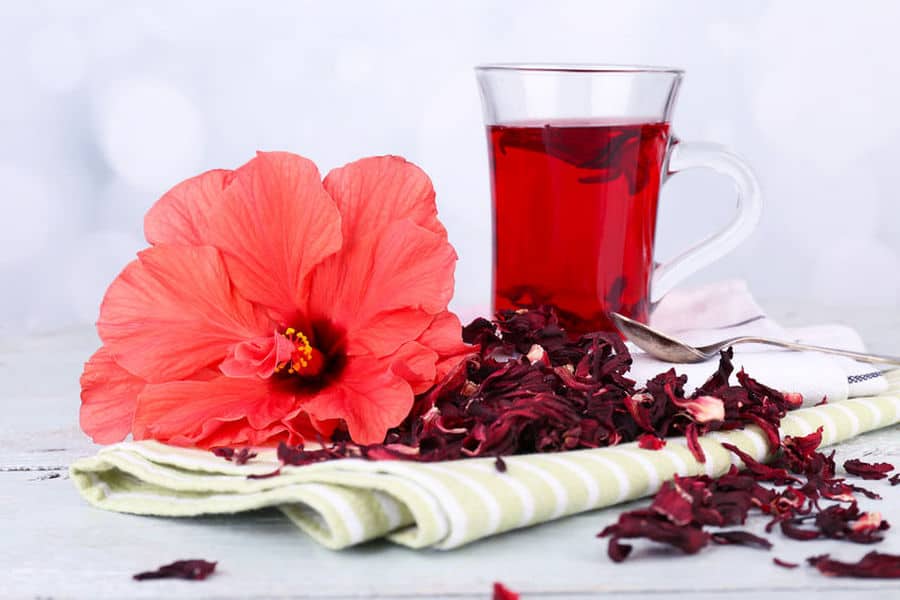
Hibiscus tea is a tisane, which means it does not come from the true “tea plants” (Camellia sinensis).
You make it by brewing parts of hibiscus flowers, commonly from Hibiscus sabdariffa and Hibiscus rosa-sinensis species. The dry flowers produce a deep red color that makes the tea look almost like syrup.
The only parts used to make hibiscus tea re the petals and sepals, which are the green bulbs in the middle of the flower.
When you brew this tea, the result is a dark red beverage that looks almost like cranberry juice. The flavor profile is sweet and tart, like raspberries.
Does hibiscus tea have caffeine? It’s not if you only consume the flower tea. However, some hibiscus tea blends are mixed with tea leaves, such as green or black tea.
These tea blends contain caffeine, so you must check the ingredients carefully.
Hibiscus Tea Benefits for Health
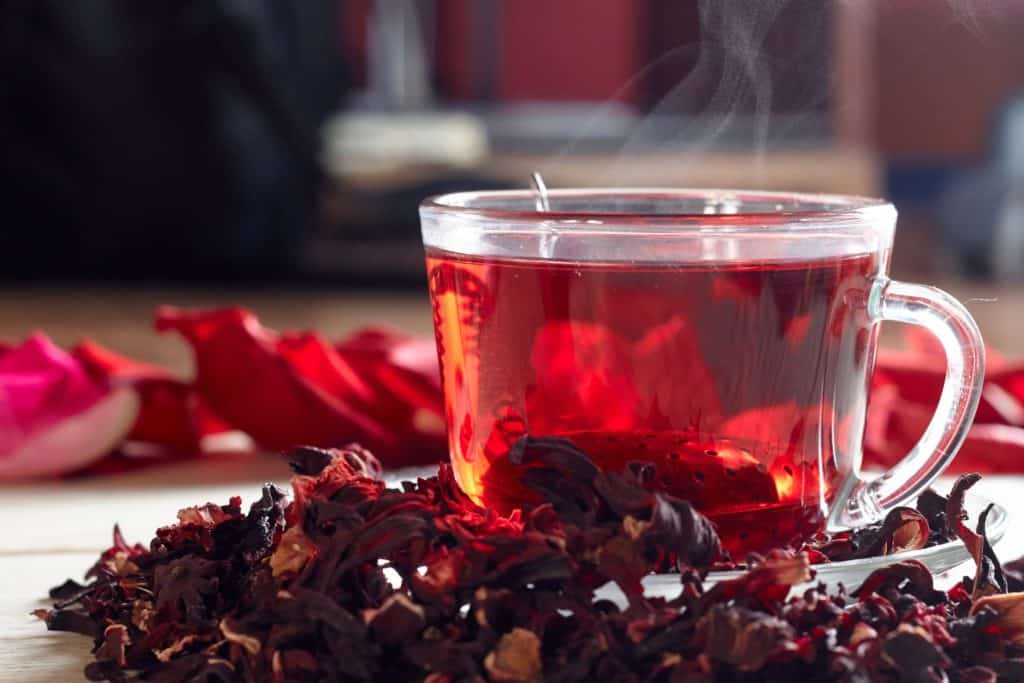
Unlike with the “true” tea types, like green or black, researchers have not found definite results about hibiscus tea’s health benefits. However, drinking this tea still possibly gives you positive effects, such as:
Lowering the Blood Pressure
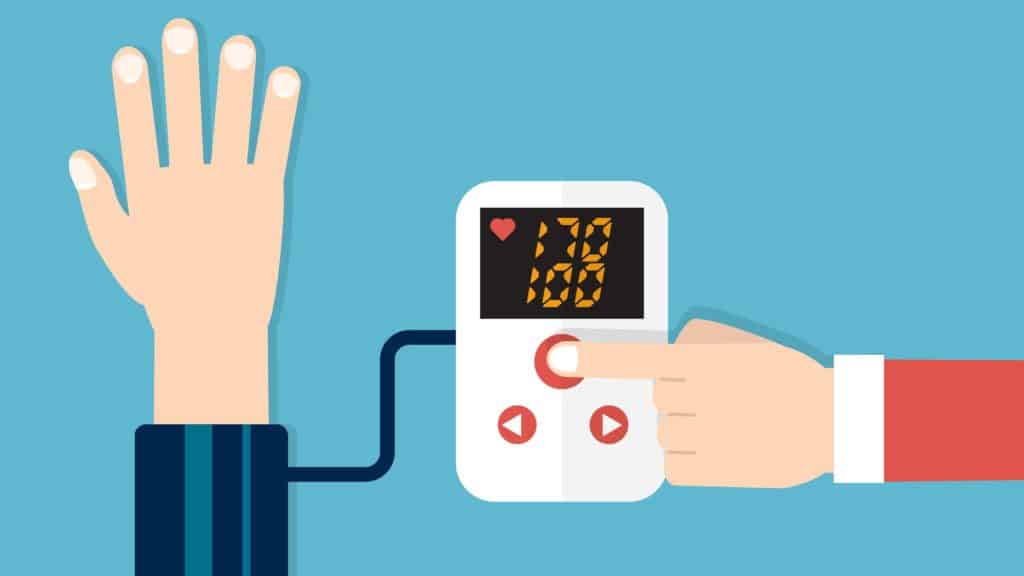
Hibiscus tea is a traditional remedy for high blood pressure. Drinking hibiscus tea may help to regulate your blood pressure, especially if you have a high risk of developing hypertension.
Keeping the Liver Healthy
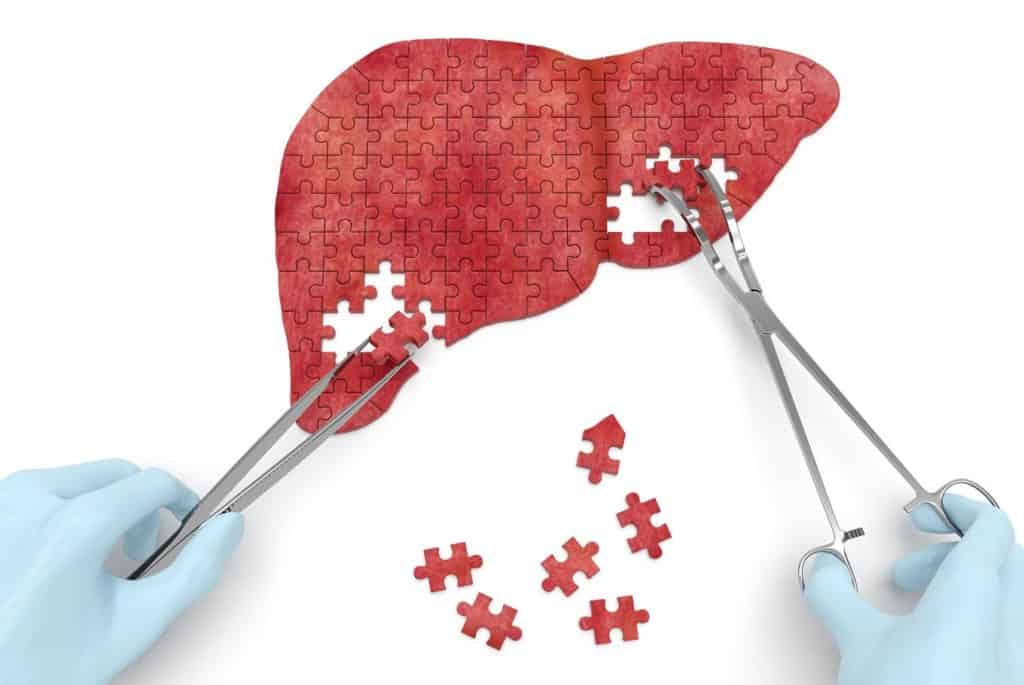
Several experiments on mice have proven the hibiscus extractability to reduce liver damage and support its detox function. It could keep the liver functioning properly, reducing the fat accumulation and damage risks.
Reducing the Effects of Free Radicals
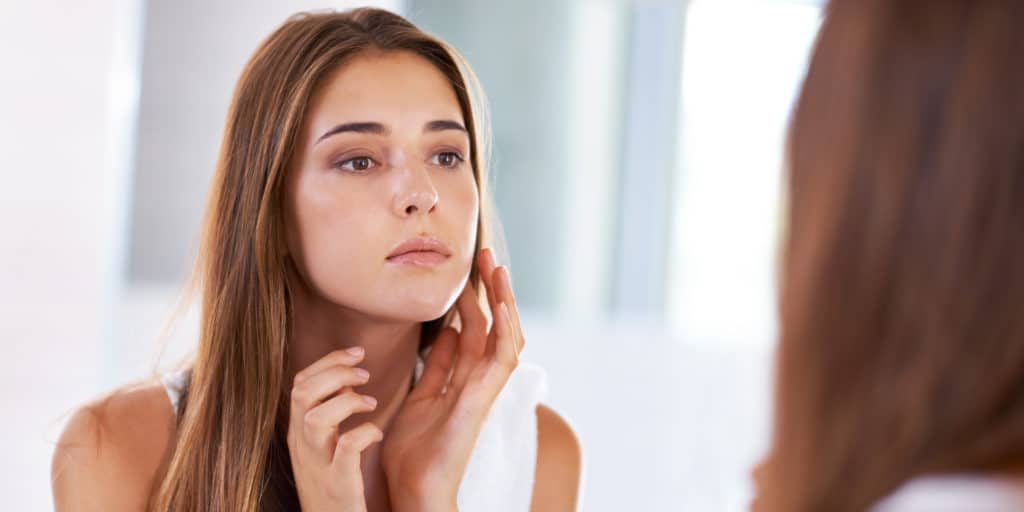
Hibiscus contains a lot of antioxidants, which could play important roles in reducing the effects of stress. The free radicals from stress can lower your immune system. Antioxidants help to reduce the effects of free radicals.
Reducing Bacterial Infection
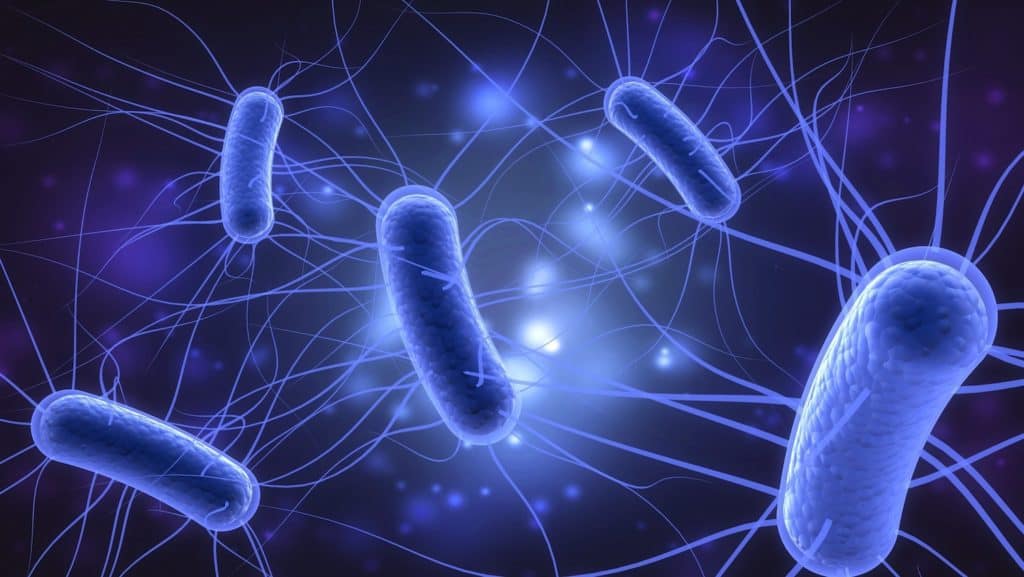
Several studies have shown that hibiscus compounds could reduce the development of E. coli bacteria. If you consume hibiscus tea regularly, you may be able to keep your guts healthy.
However, this antibacterial quality still requires further studies.
While the effects are still inconclusive, you can get the possible health benefits by adding the hibiscus tea to your favorite drink.
Hibiscus Tea Benefits for Beauty
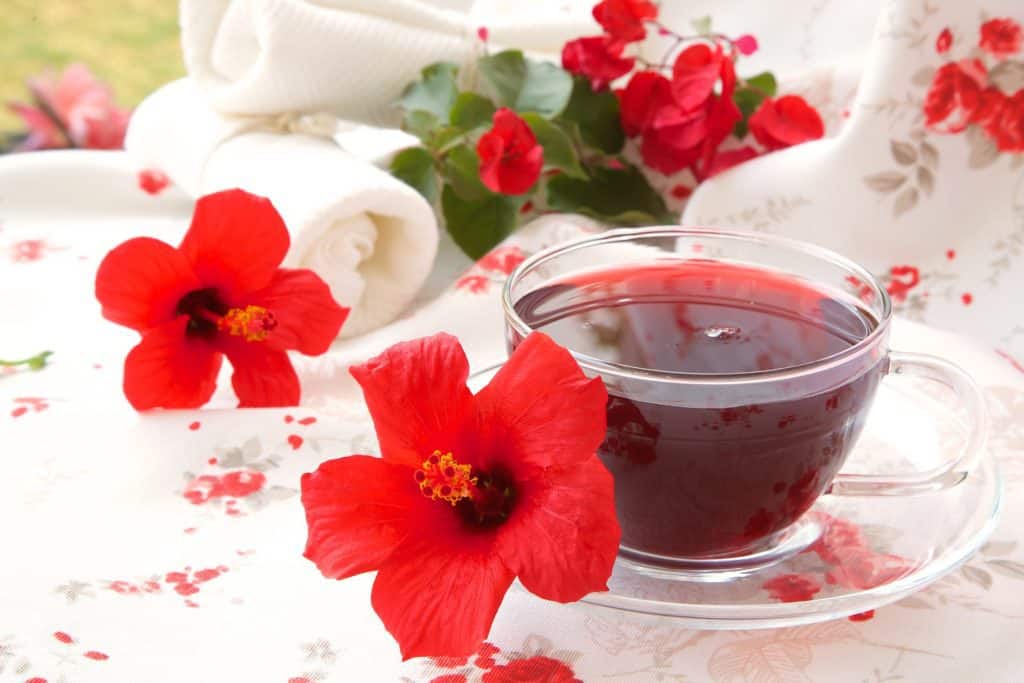
Hibiscus has long become one of the beauty secrets in India. There are several ways to use hibiscus tea for beauty, such as:
Softening and Cleansing Hair

Hibiscus benefits for hair come from saponin, its natural “cleaning” agent and soap. Crush the raw petals with hibiscus tea, honey, and olive oil to create a mushy paste.
Apply on your hair and scalp, let it dries, and then rinse.
Reducing Spots and Uneven Skin Tone
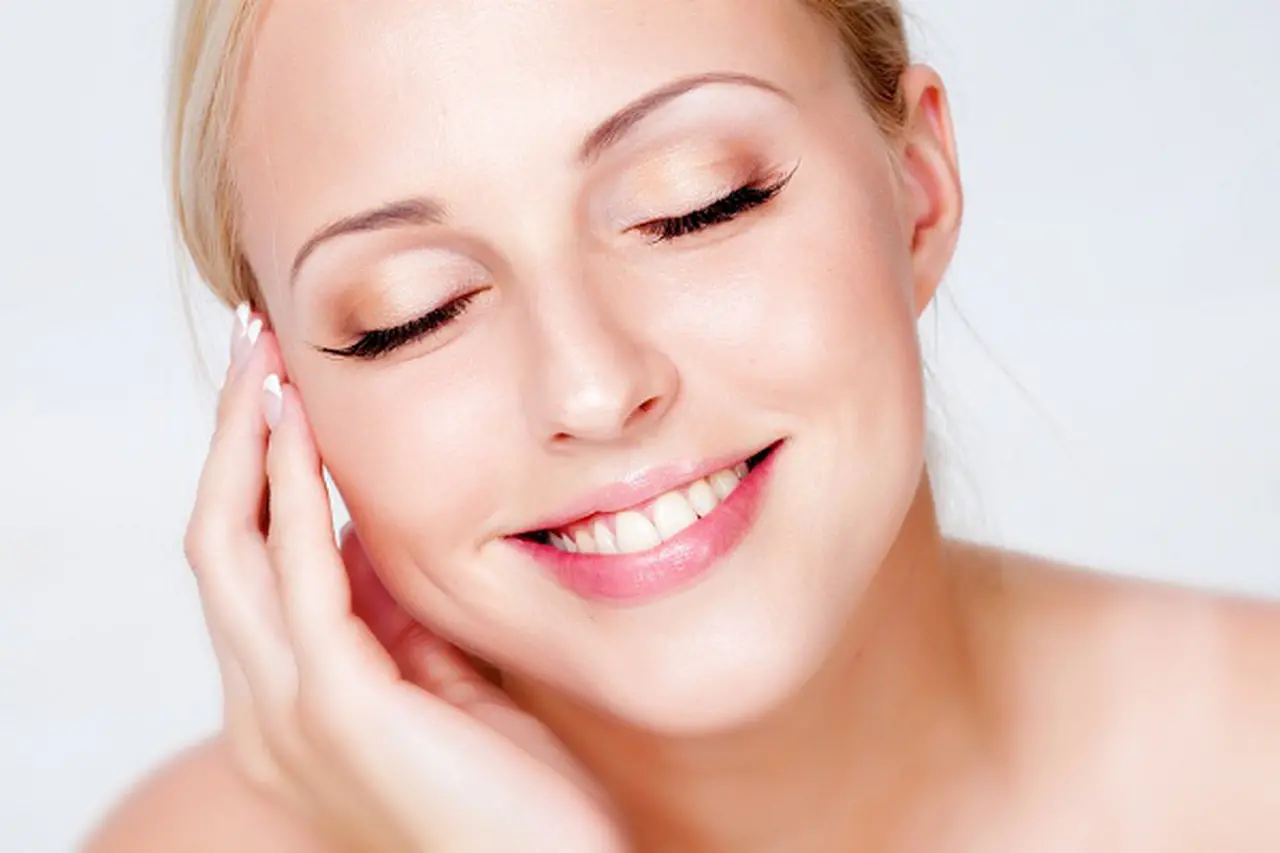
Hibiscus contains Alpha Hydroxy Acids, which can reduce the signs of pigmentations. You can crush the petals with hibiscus tea to create a paste. Apply to the problematic spots and let it dry before washing.
Deep Cleansing the Face
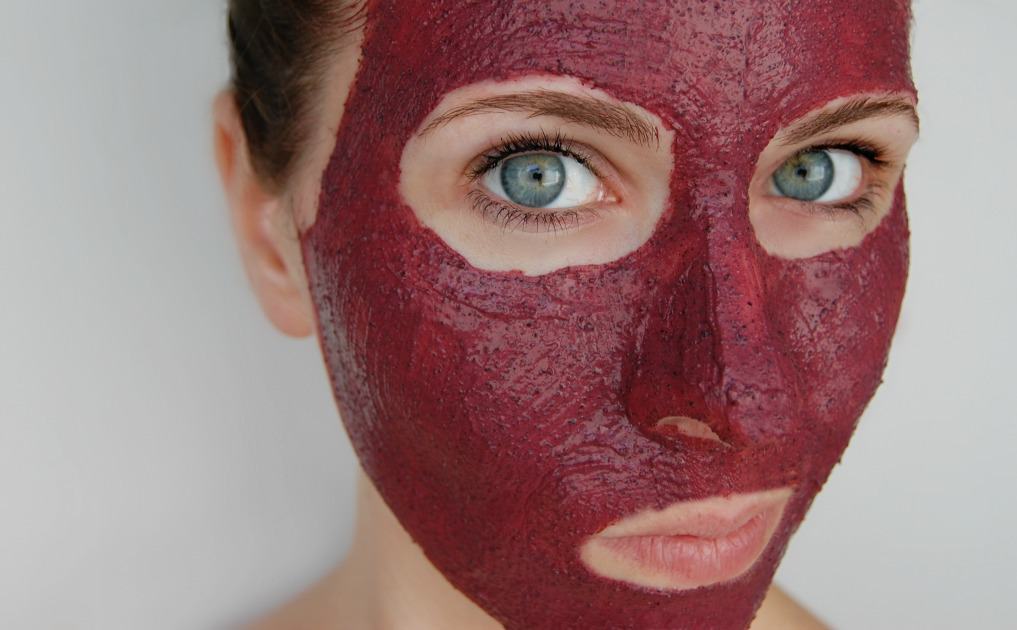
The mild exfoliation effect in hibiscus can clean your skin to the pores. You can mix the tea with hibiscus tea and raw oils, before applying it to the face. Let it sits for 15 minutes before rinsing.
While hibiscus is a nice alternative for natural beauty products, you should pay attention to unsavory symptoms. Stop the usage if you experience itchiness, sneezing, and other allergy symptoms.
Side Effects of Hibiscus Tea
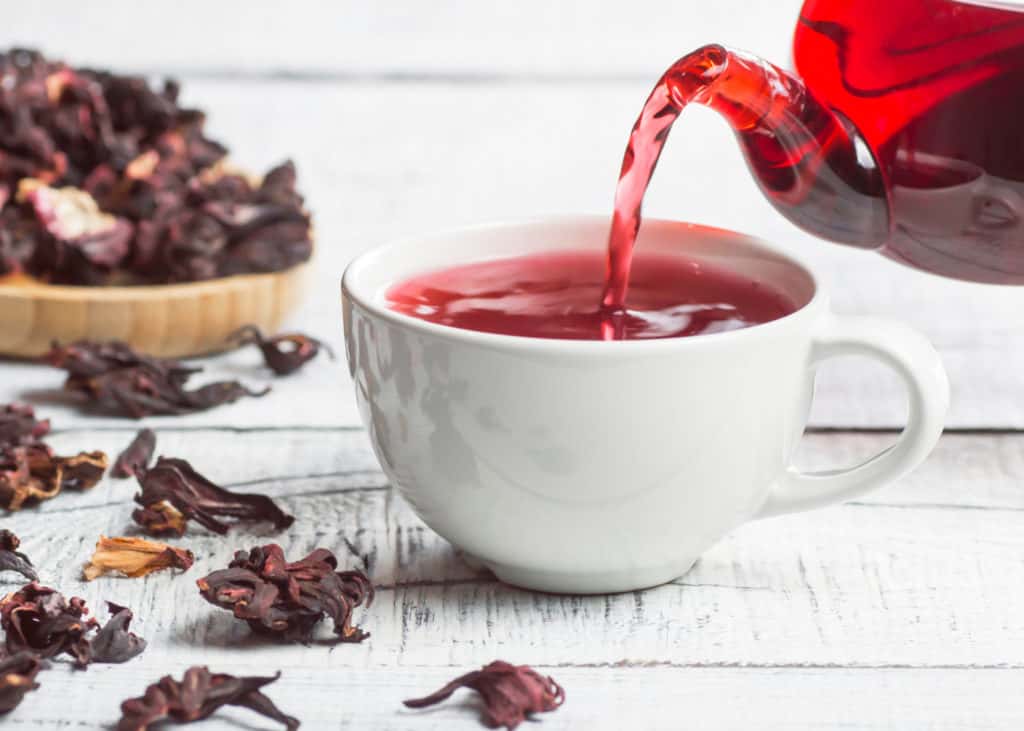
Hibiscus tea is generally not dangerous, but it can expose you to some health risks, especially with excessive consumption. Some possible side effects include:
Pregnancy Complications

Hibiscus tea during pregnancy may pose unique problems toward specific women. You could experience things like nausea, vomiting, and pain when urinating.
Allergic Reactions
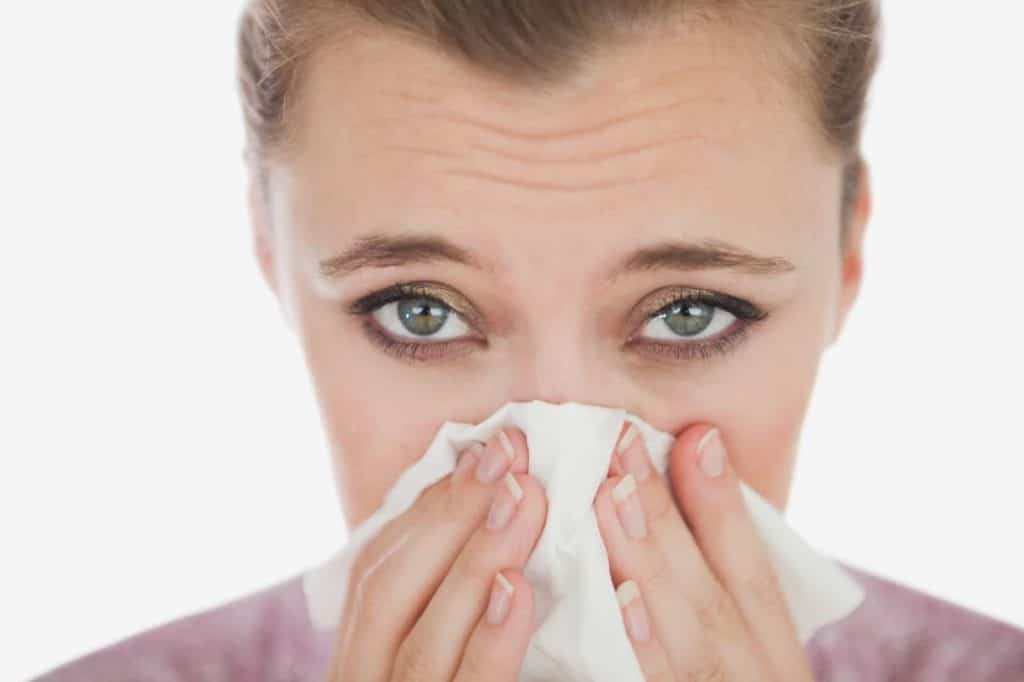
Allergic reactions can happen if you have allergies toward the flowers. The symptoms may occur as swelling, nausea, and itchy red dots.
Medication Interferences
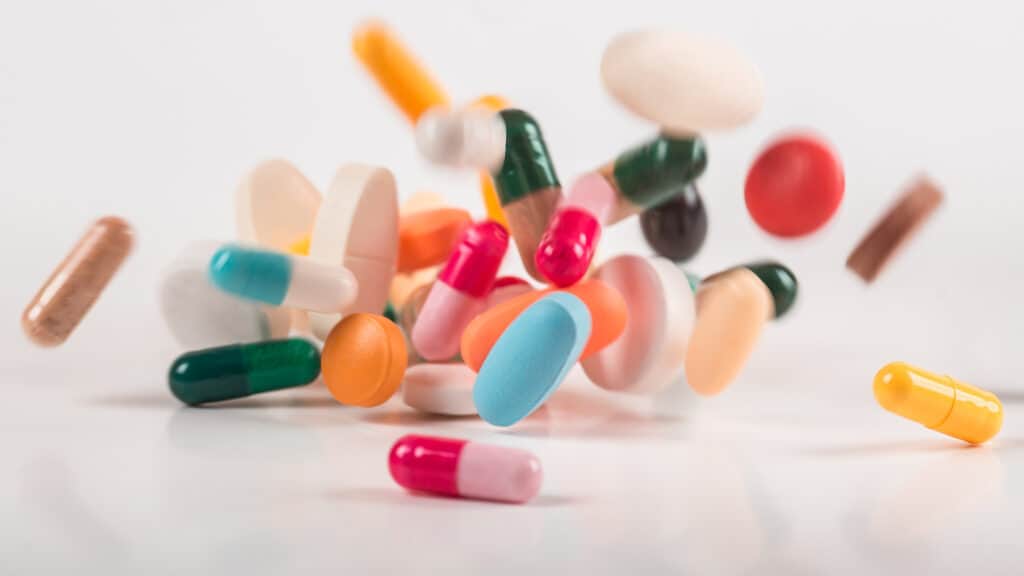
The chemical compounds in the hibiscus tea may interfere with your medications. Consult with the doctor if you are about to consume any medications.
Simple Ways to Make Hibiscus Tea
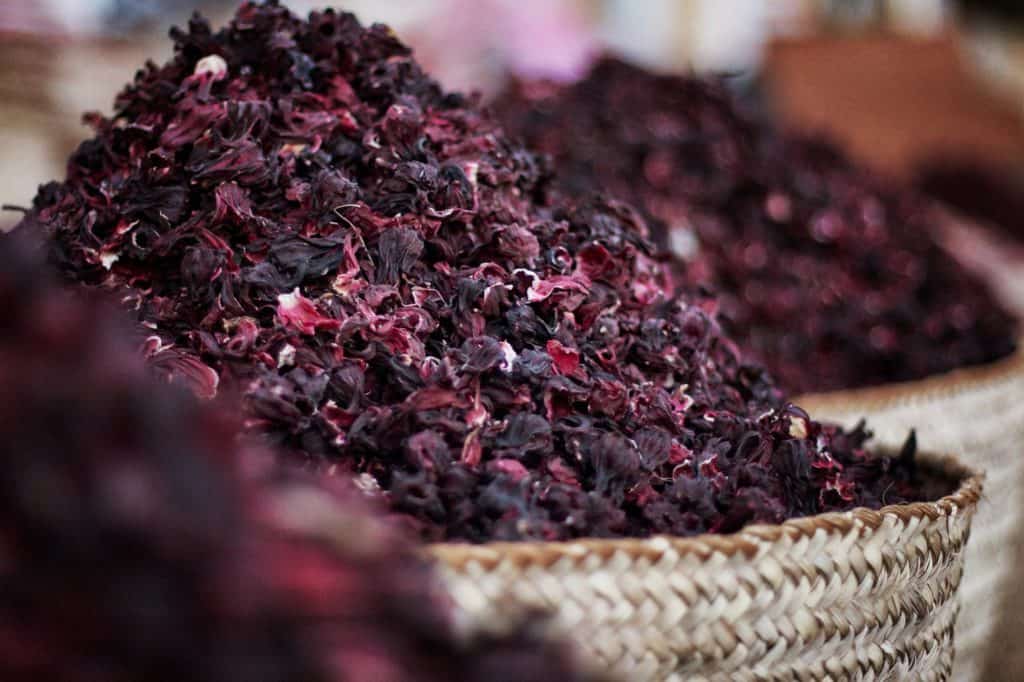
Hibiscus tea is sold in dry forms. You can buy the dry hibiscus to make tea and brew it with hot water. Here are several hibiscus tea recipe options:
Basic Hibiscus Tea
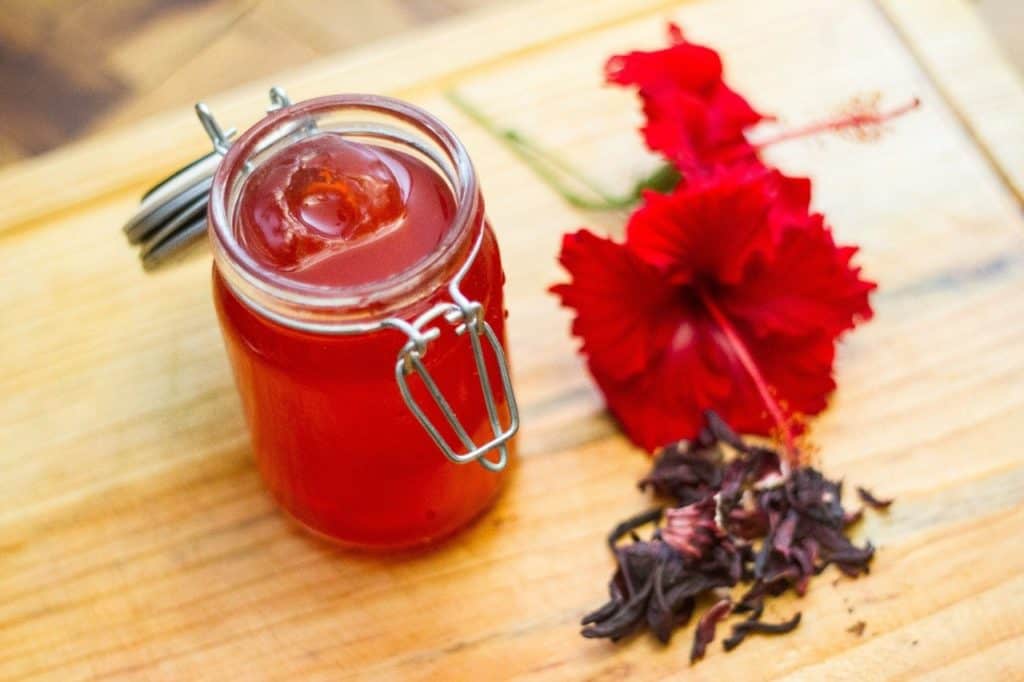
Find dried hibiscus to make the real hibiscus tea. Use the water temperature slightly below the boiling point. Steep the tea for 15 to 20 minutes.
Herbal Hibiscus Tea
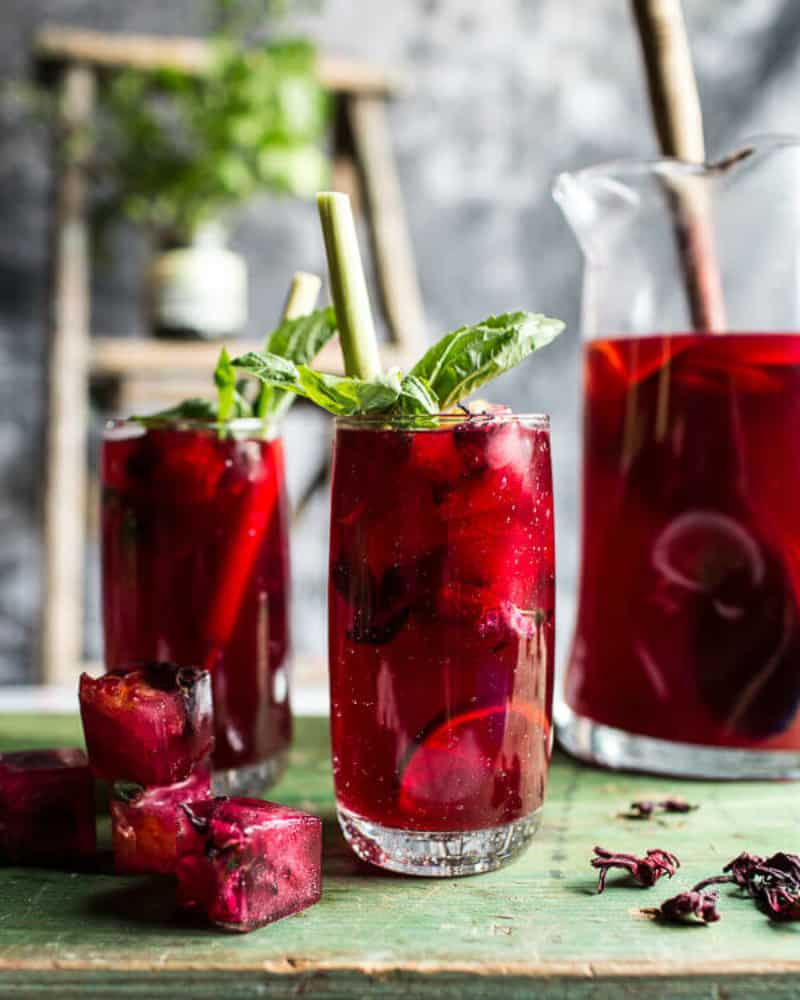
The making method for herbal hibiscus tea is similar to the previous one. However, you add spices such as cloves, lemongrass, and basil during the steeping process.
Citrus Hibiscus Tea
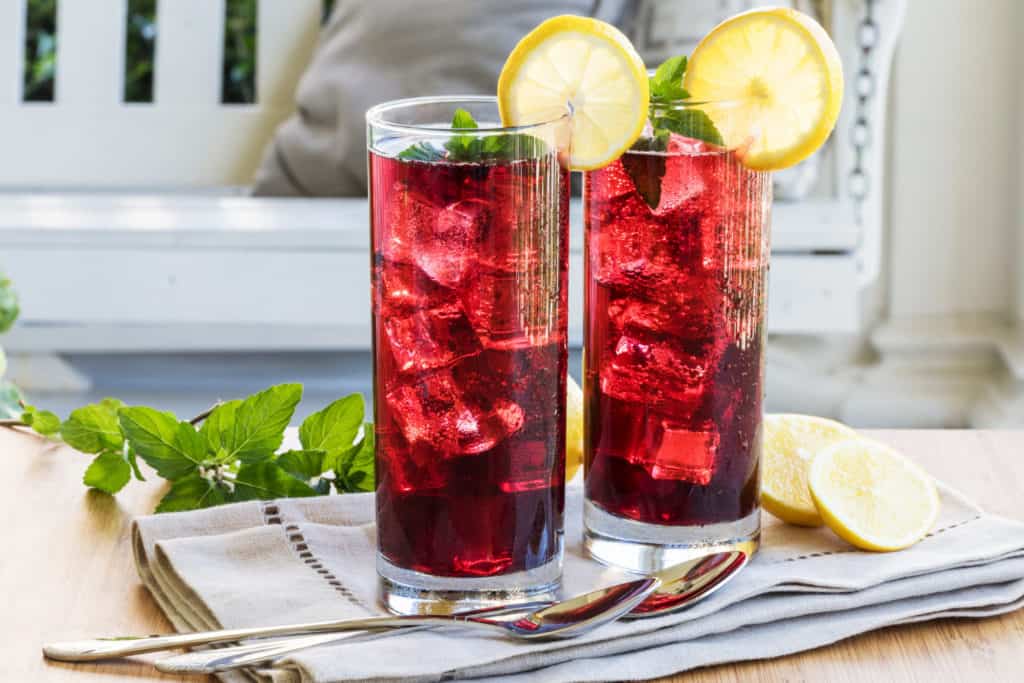
Citrus hibiscus tea complements the sweet-and-tart flavor very well. You can taste the flavor by using orange zest, orange peel, or lemon zest during the steeping process.
Hibiscus tea’s tartness and sweetness make it ideal for making cold tea. You can make a big jar and take it out whenever you want to drink something refreshing.
The Best Hibiscus Tea Brands
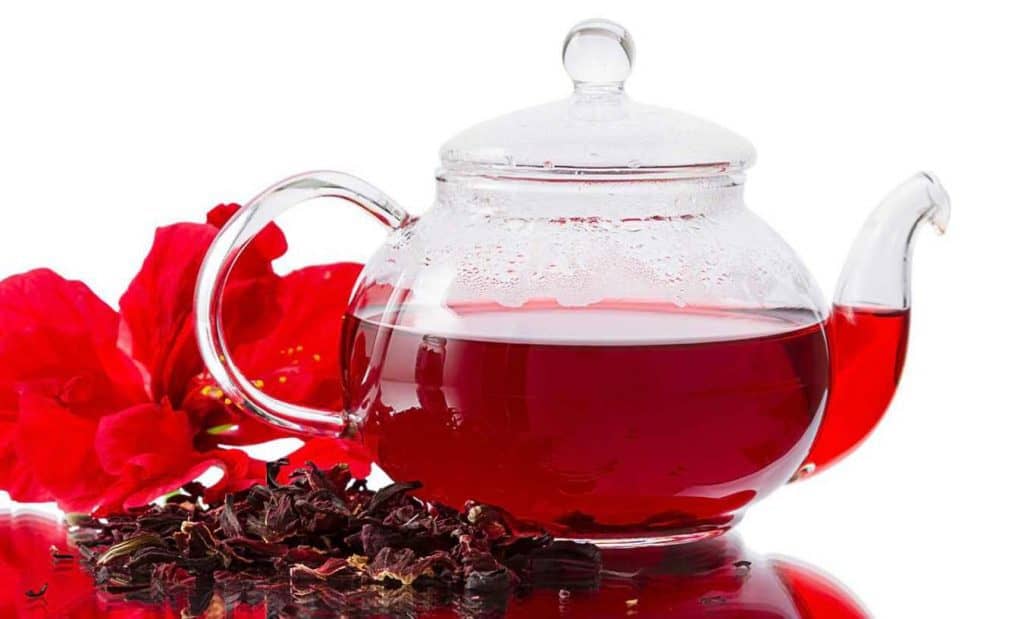
If you don’t want to make hibiscus tea from the real plants, there are hibiscus tea packages that sell more manageable portions. Some of the most famous brands include:
Traditional Medicinal Hibiscus Tea
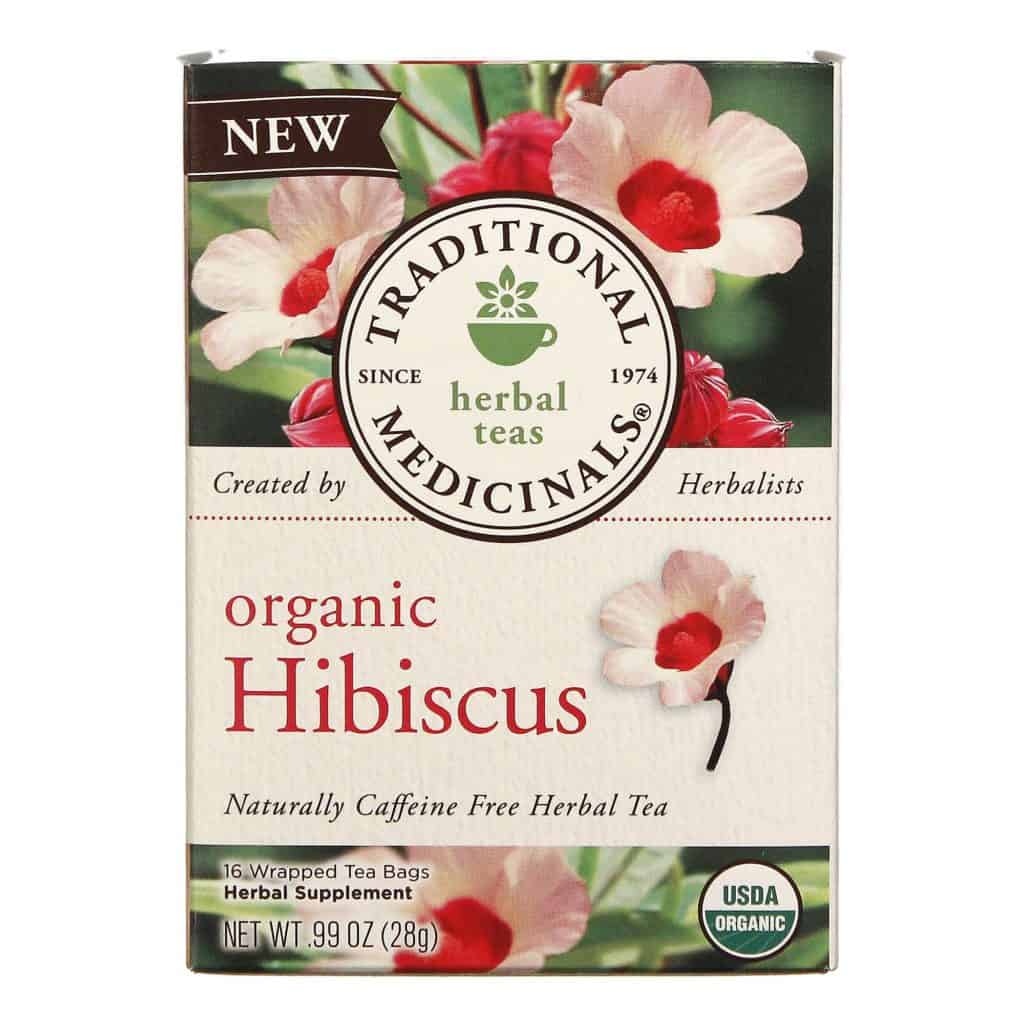
Traditional Medicinal Hibiscus Tea is an organic product. It is a bit expensive, but the flavor is rich and bright.
The Republic of Tea Hibiscus
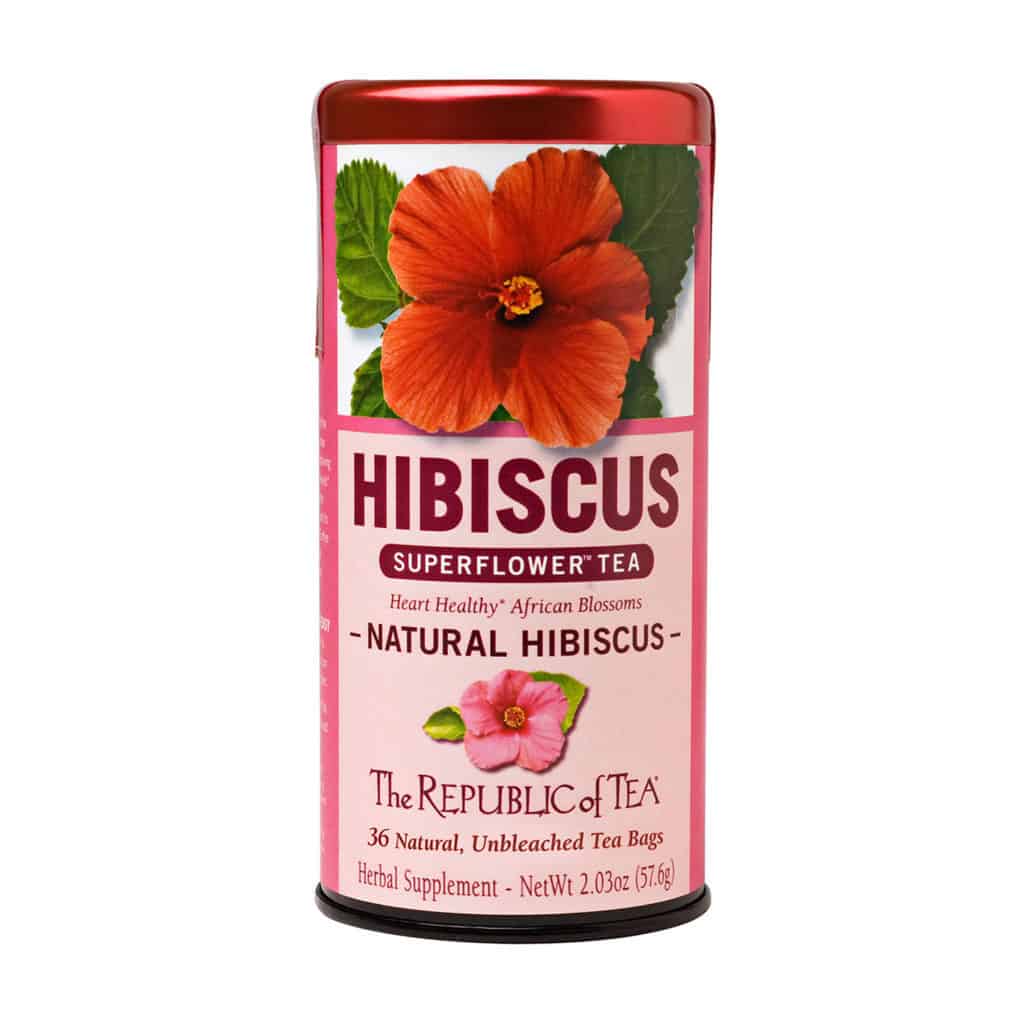
Another organic option, the hibiscus tea from this product is not blended with tea leaves. The result is hibiscus tea that does not contain caffeine.
Now Food Tea Bags Hibiscus
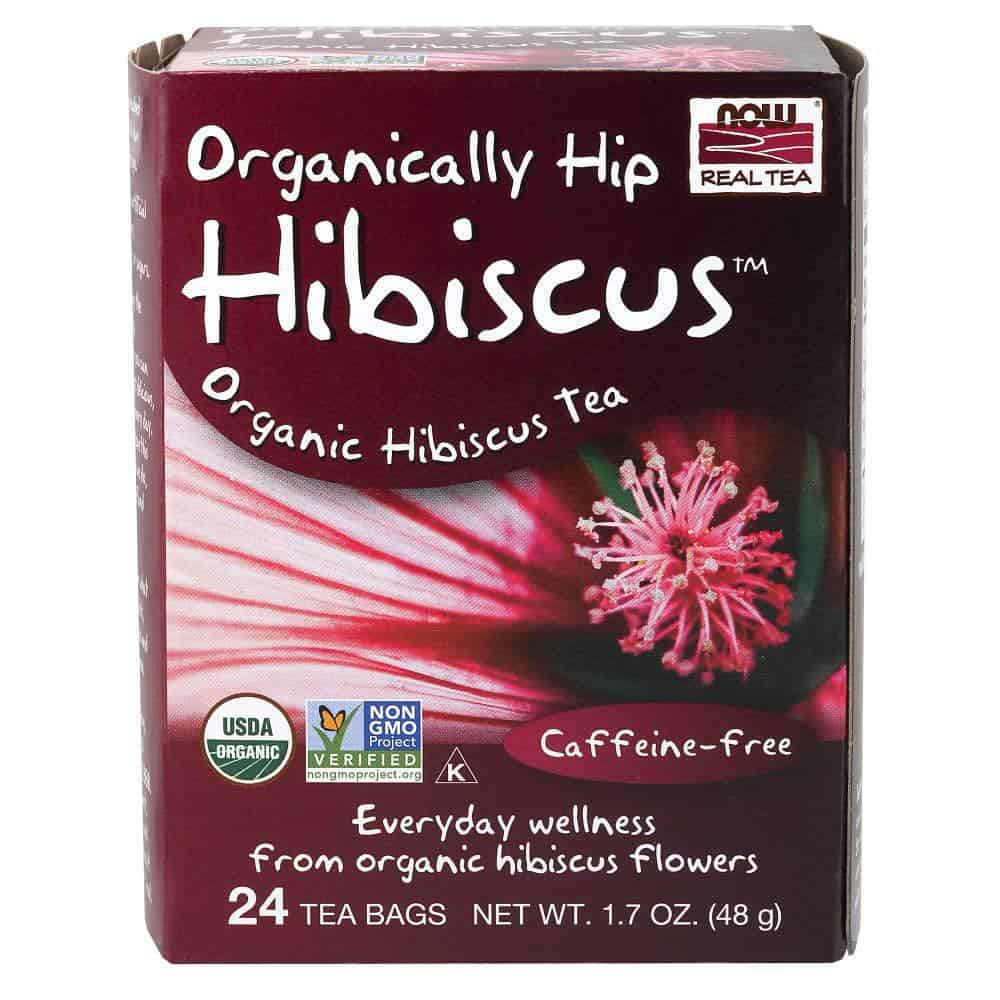
This hibiscus tea offers sustainable harvests, productions, and packaging. The tea does not contain caffeine or sugar. The flavor is subtle, with a hint of natural sweetness.
All these hibiscus tea products are pure and not containing caffeinated leaves. Enjoy these brands to get the best hibiscus flavor without making it yourself.
Conclusion
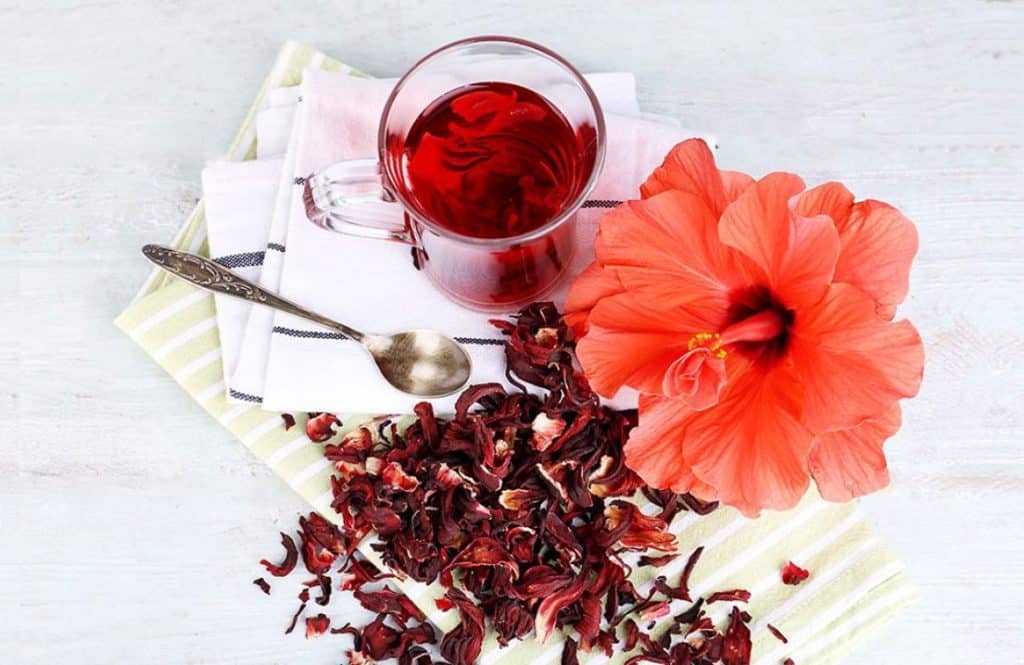
Hibiscus tea is a unique tisane because the resulting liquid is bright red. The flavor is satisfying, light with hints of sweetness and tartness.
Don’t forget to consider the hibiscus tea benefits and side effects before consuming it.
